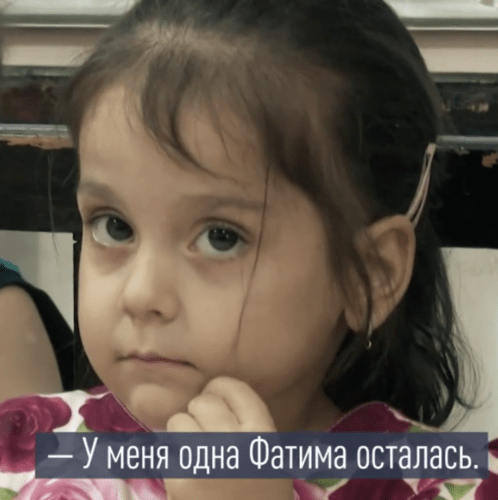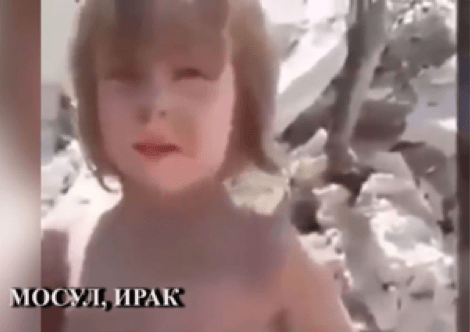
The terrorist organization "Islamic State" (IS, earlier ISIL) (banned in Russia by the court), which managed to capture significant territories of Iraq and Syria in 2014-2016, since its appearance, had actively attracted militants from many countries, including Russia. In its heyday, the strength of the grouping exceeded 30,000 fighters 1, two-thirds of them being foreigners 2. Among militants from Russia, who went to fight for the IS*, many were from Northern Caucasus. They often took their families with them, not intending ever to come back. The main inflow of women and children to the territories controlled by the IS* was in 2015 3.
According to various estimates, hundreds or even thousands children from Dagestan, Chechnya and other regions of the Caucasus may still be in Iraq and Syria. Their life and health are in particular danger, after the ISIL* began suffering large-scale defeats in the summer of 2017. The issue of returning the children of perished militants from the warfare area is now very topical.
The "Caucasian Knot" tells why it is not easy to return militants' children to Russia, who is engaged in the process, and how many children they have already managed to return.
Why is it difficult to return children to Russia?
One of the obstacles is the absence on them of any documents confirming their Russian citizenship. Particularly this problem concerns Iraq, because in order to take children from there, a court judgement is needed, proving that the child is a citizen of Russia. In Syria, this issue is easier to solve, since Syrian President Bashar al-Assad has allowed taking Russian citizens away without a court judgement 4.
 Another problem is that mothers returning to Russia with their children often face a risk of criminal prosecution for participating in illegal armed formations (IAFs) in the territory of a foreign state.
Another problem is that mothers returning to Russia with their children often face a risk of criminal prosecution for participating in illegal armed formations (IAFs) in the territory of a foreign state.
For example, three women from Dagestan, who were brought to Grozny by a special flight in a group of rescued women and children from Syria, were almost immediately detained by law enforcers. As it turned out, the women had been on the wanted list 5.
Who deals with the return?
A hotline was launched to collect information about Russian children in Iraq and Syria: +7 (495) 221-70-65.
The Chechen government and the clergy of Chechnya are actively engaged in the return of militants' children, especially the plenipotentiary of the head of Chechnya in Middle East and North Africa, Senator Ziyad Sabsabi, who personally met the Iraqi and Syrian authorities. All the related expenses are born by the Akhmat Kadyrov Foundation 6.
On August 13, 2017, more than 50 women marched in Grozny, urging the Chechen leadership to help in returning children from the territories of Iraq and Syria.
Apart from the Chechen government, Anna Kuznetsova, the Russian Children's Ombudsperson, is also involved in returning children; in August this year, she reported that a database had been gathered with hundreds of family names and contact details of children in Syria and Iraq, who might need help.
"There, of course, the entire territory of the Russian Federation is present... The overwhelming majority refers to residents of Chechnya and Dagestan. Today, the Dagestani list contains more than 200 people... According to unofficial data, there are many more of them there," Ms Kuznetsova said in August after a sitting on the problem of returning children 7.
Also, the parties to the negotiation process are the Russian Ministry of Foreign Affairs (MFA), the federal commission for the return of children from warfare areas, representatives of Dagestan, and Ambassadors of Syria and Iraq. Besides, members of the Chechen Diaspora in Jordan, who work in cooperation with the Red Crescent Society, are helping to return Chechen children from Iraq 8.
How many children have returned and how many still remain there?
 By mid-September, it became known that at least 445 minor Russians remained in the warfare areas in Syria and Iraq; over a hundred of them are under the age of three 9.
By mid-September, it became known that at least 445 minor Russians remained in the warfare areas in Syria and Iraq; over a hundred of them are under the age of three 9.
In October-November, 43 children were returned to Russia from Syria 10 They are brought in small groups. Hundreds of Russian children still, perhaps, remain in the warfare areas.
The "Caucasian Knot" has collected detailed information about the militants from the Caucasus, fighting in Syria and Iraq for jihadists, in its analytical material "Caucasians in the ranks of IS*". It tells about how many people from the Caucasus had left for the IS*; how they got there, and what expected those, who tried to return. Also, the material presents stories about well-known Caucasian commanders in the IS*, and how ISIL* cells operate in the Caucasus as such. Besides, little-known information about the ISIL*, narrated by a witness, who had been in the ranks of the IS*, and got disappointed, can be learned from the interview "Travel to the Islamic State* and back".
Fresh materials about the influence of the war in the Middle East on the situation in the regions of the Caucasus are published by the "Caucasian Knot" on its topical page "Caucasus held at gunpoint by Caliphate".
* - "Islamic State" (IS, earlier ISIL) has been recognized to be a terrorist organization and banned in Russia by the court.
Примечания
- ISIS can 'muster' between 20,000 and 31,000 fighters, CIA says // CNN, 12/09/2014.↑
- ISIS By The Numbers: Foreign Fighter Total Keeps Growing // NBC News, 02/28/2015.↑
- BEYOND THE CALIPHATE: Foreign Fighters and the Threat of Returnees. The Soufan Center. October 2017. P. 5.↑
- Seven women and 14 children brought to Grozny by special flight from Syria // TASS, October 21, 2017.↑
- Member of HRC under head of Chechnya: three women brought by special flight from Syria detained in Dagestan // TASS, November 14, 2017.↑
- Eight children and four women brought to Grozny from Iraq and Syria // TASS, September 1, 2017.↑
- Kuznetsova told from what Russian regions children are brought to Syria and Iraq // RIA "Novosti", August 15, 2017.↑
- Chechen girl found in Iraq identified // "Caucasian Knot", 02.08.2017.↑
- Russia launches hot line for children's return from Iraq and Syria // NTV, 18.10.2017.↑
- Forty-three Russian children returned from Syria within six weeks // TASS, November 17, 2017.↑